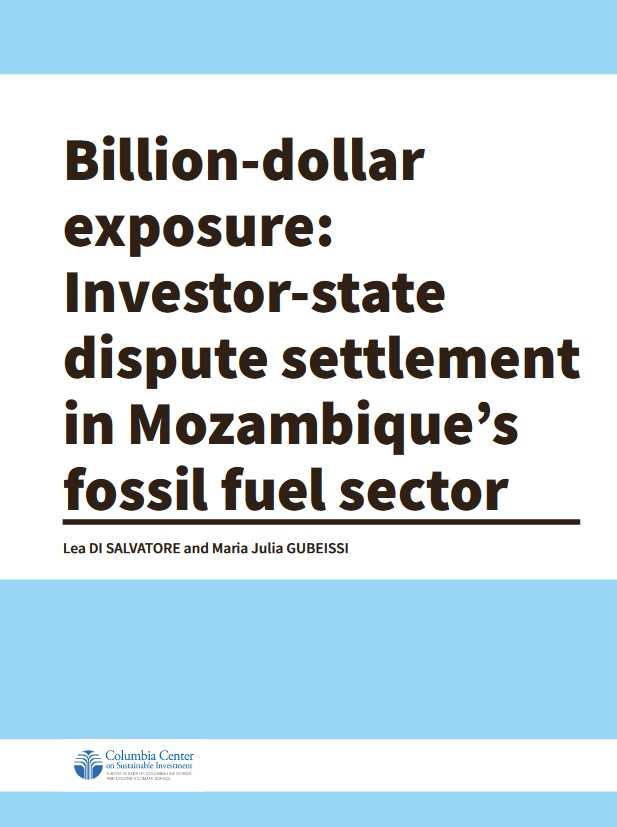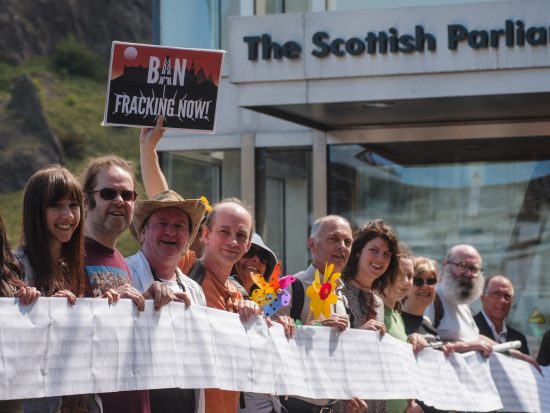
With clear signs that TotalEnergies is about to restart the development of its massive LNG project in the conflict-ridden province of Cabo Delgado in Mozambique, our new report points to how contracts with companies like TotalEnergies and ENI are exposing the people and government of Mozambique to multi-billion-dollar financial risk, while blocking the country’s path to the energy transition and development. Companies are entitled to claim billions in compensation when the government takes public interest measures that affect the profits of these companies, like increasing minimum wages, introducing environmental or health standards or increasing taxes on companies.
The report written by Columbia University and commissioned by Justiça Ambiental! (Friends of the Earth Mozambique), Friends of the Earth Europe, Milieudefensie (Friends of the Earth Netherlands) and Friends of the Earth U.S. shows how Mozambique’s gamble on fossil fuel-based economic growth comes with significant economic risks and crowds out investments in the country’s enormous renewable energy potential. This happens in a country that is already struggling to afford the costs of damage caused by flooding, droughts and cyclones linked to climate change.
Mozambique faces an estimated USD 29 billion in financial risk due to the possibility of foreign fossil fuel investors, such as TotalEnergies and ENI, to directly sue the state through problematic investor-state dispute settlement (ISDS). This sum is equal to almost a decade of Mozambique’s government expenditures on poverty, health, and education.
Mozambique’s international investment agreements and publicly available oil, gas, and coal contracts allow foreign investors to bypass the national judicial system and bring multi-billion-dollar ISDS claims against Mozambique. Such claims can result in significant costs for the country, and they also have a chilling effect on new public-interest regulations in areas such as health, environment, community rights, or labour protections. ISDS can undermine attempts to adopt meaningful legislation to transition away from fossil fuels and achieve sustainable development goals.
The report notes that European countries have already taken steps to limit their own exposure to ISDS. Mozambique can follow suit and take actions to remove ISDS from their contracts and treaties, replacing it with alternative dispute resolution mechanisms. They can also take steps to terminate investment agreements in force. On top of that, Mozambique should reexamine whether the costs of these projects are worth the risks and consider cancelling the projects.
Background and context to this issue can be found in our previous publications Assessment of TotalEnergies’ Mozambique LNG Project Human Rights due diligence and in the report Fuelling the crisis in Mozambique.
Related Content
We think you’d also like:

Gas
Stopping climate breakdown means keeping all fossil fuels in the ground – including gas. Governments and banks must stop financing gas pipelines and terminals which would lock us into a fossil-fuel future.







